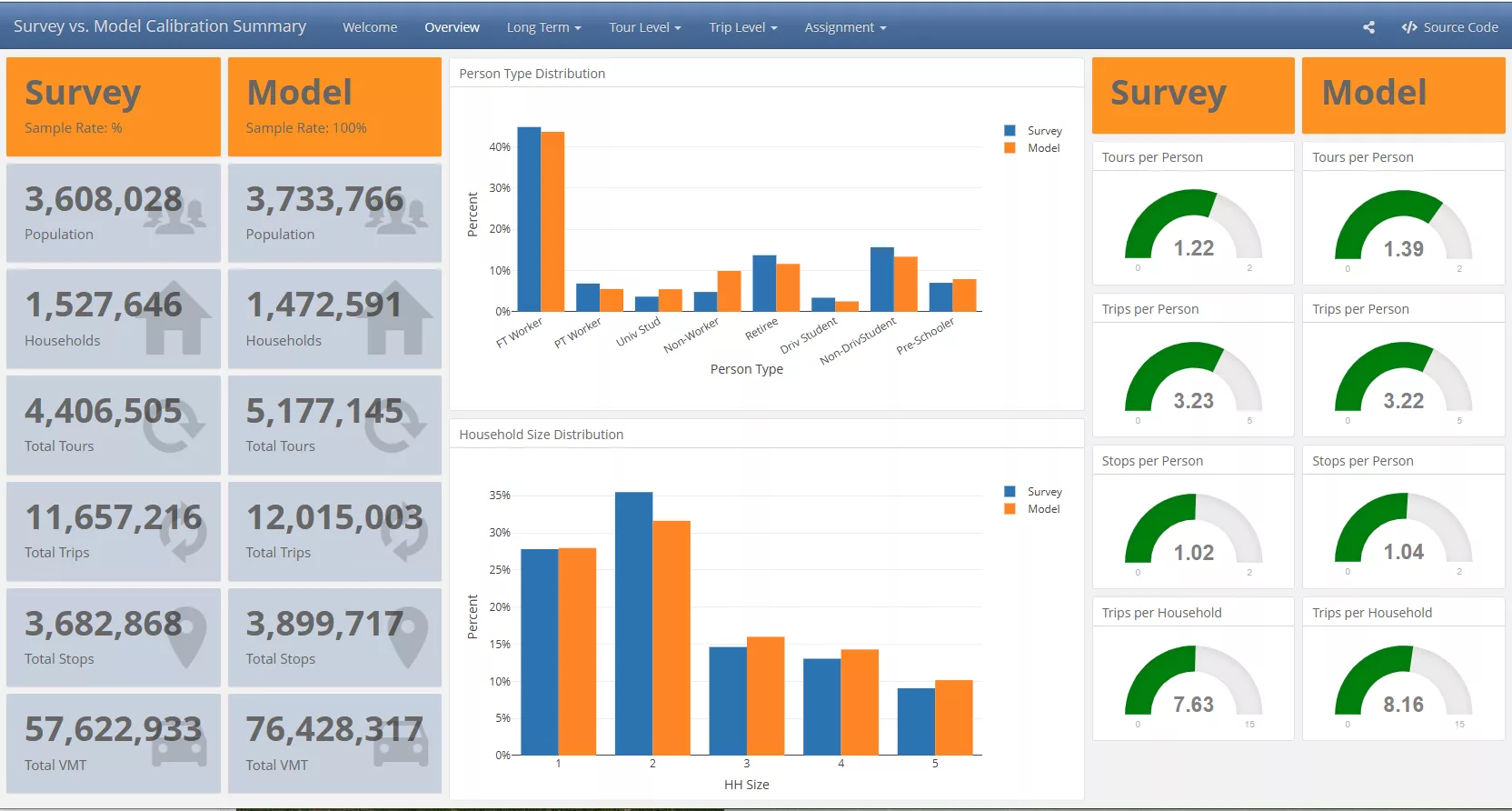The Metropolitan Council is the federally designated metropolitan planning organization (MPO) for the Twin Cities region in Minnesota and Wisconsin. As the MPO, it is responsible for overseeing the development of a planning strategy and allocation of resources to improve the region’s infrastructure and multimodal transportation system. This oversight ensures the region’s infrastructure can continue to effectively serve its residents and workers across 19 counties and two states.
Since 2014, the Metropolitan Council used an activity-based travel demand model. While effective for many years, this model of record had experienced technical issues that limited its utility to planners. Recognizing the need for a new model approach, the Metropolitan Council partnered with RSG to implement a local deployment of ActivitySim, an advanced open-source activity-based travel behavior modeling platform that shares a common codebase.
This phased travel model development project aimed to replace the region’s existing model with a version of ActivitySim that targeted parts of the new model for selective calibration. Through this work, the Metropolitan Council sought to improve the accuracy, responsiveness, and longevity of its modeling solution, ensuring that its planning efforts align with the evolving needs and travel patterns of the region’s diverse and growing population.
The Challenge
In 2014, the Metropolitan Council implemented the regional TourCast model in Cube Voyager, making it the first activity-based model used in the region. Since that time, the model required several updates to keep pace with evolving travel changes and changes to both the region’s transportation network and population. Many of these updates fixed known issues with the TourCast model’s components.
While model updates had kept the TourCast model operational and in use as the model of record for several years, the Metropolitan Council opted to join the ActivitySim consortium and begin development of their own ActivitySim implementation. They divided the work into two phases, focusing the first phase on implementation. Metropolitan Council designed the second phase to enhance the local implementation of ActivitySim’s ability to answer policy questions by incorporating ongoing improvements to the ActivitySim platform into the regional model.
RSG’s Solution
RSG and the Metropolitan Council opted to use a single-zone (only transportation analysis zones) ActivitySim deployment for the Twin Cities region as the starting point for the model development project. This decision simplified the model update process and meant most of the model’s components were already in place, requiring only region-specific adjustments as part of the calibration process. The model included several long-term models specific to more fixed choices, such as auto ownership, telecommute frequency, and work-from-home patterns.
The Metropolitan Council wanted the new ActivitySim model to function within the existing Cube Voyager model stream used by their TourCast model. This required removing the existing model steps that called TourCast and updating the Cube scripts. The 2018 base-year model was used as the baseline scenario for all tests, though a subsequent phase would update the model to a post-pandemic base year by using the 2022 Travel Behavior Index Data.
To support future model calibration and validation, RSG implemented a visualization tool (ABM Visualizer) to compare ActivitySim outputs against survey/observed data and compare results from two different model runs. As part of the work, the project team added the Metropolitan Council model to GitHub, and the uploaded code included all ActivitySim configuration files, Cube scripts, and instructions to run the model.
This first phase included recommendations for the second phase of work. These recommendations were categorized as either data improvements or model improvements. Data improvements were critical to ensuring the model outputs represent current conditions accurately and that future-year applications are based on precise inputs. Model improvements included both calibration enhancements and feature updates.
The project team recognized the interconnection between the data used in the model and the model’s functionality throughout the project, even though they separated them for prioritization purposes. The successful implementation of these recommendations will help ensure the model’s robustness and reliability, ultimately enhancing the Metropolitan Council’s transportation planning capabilities for years to come.






